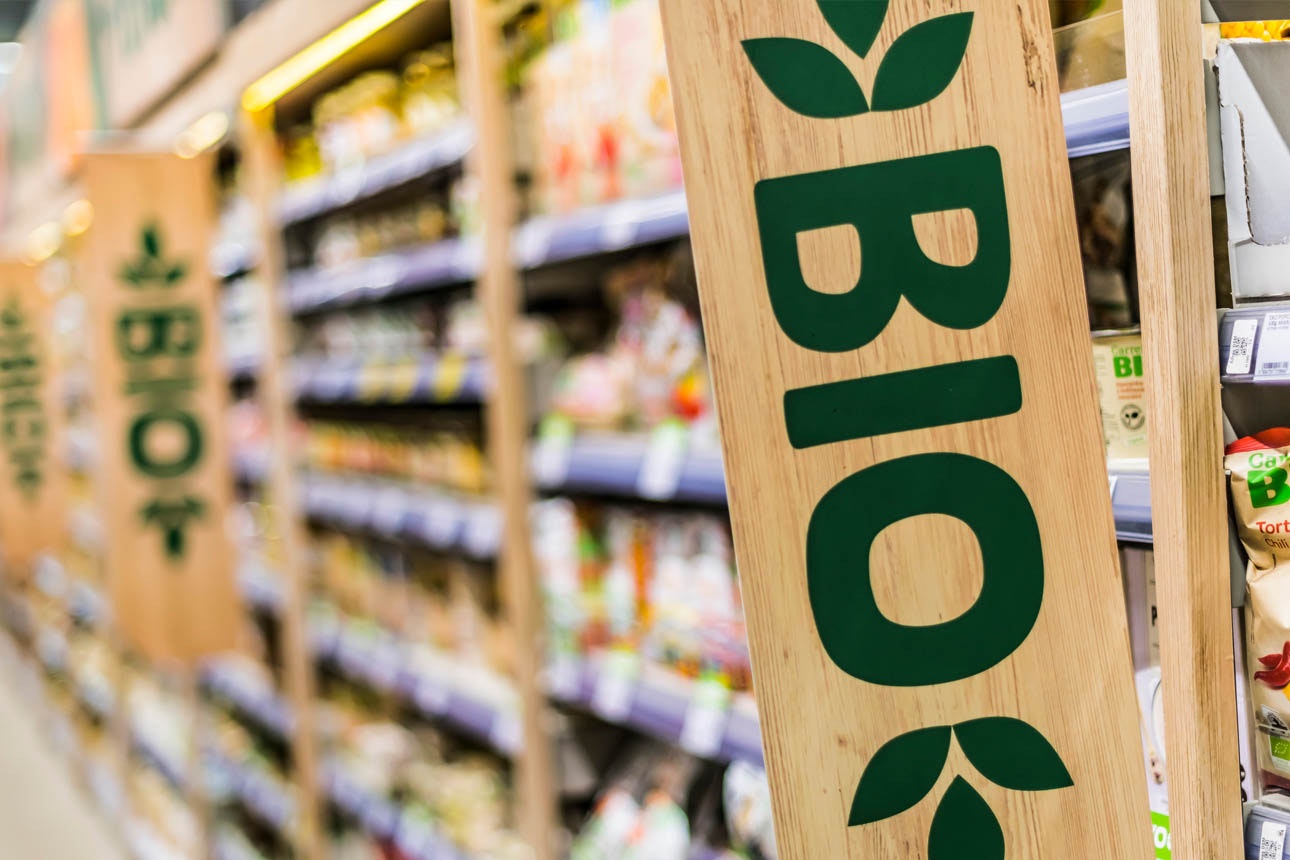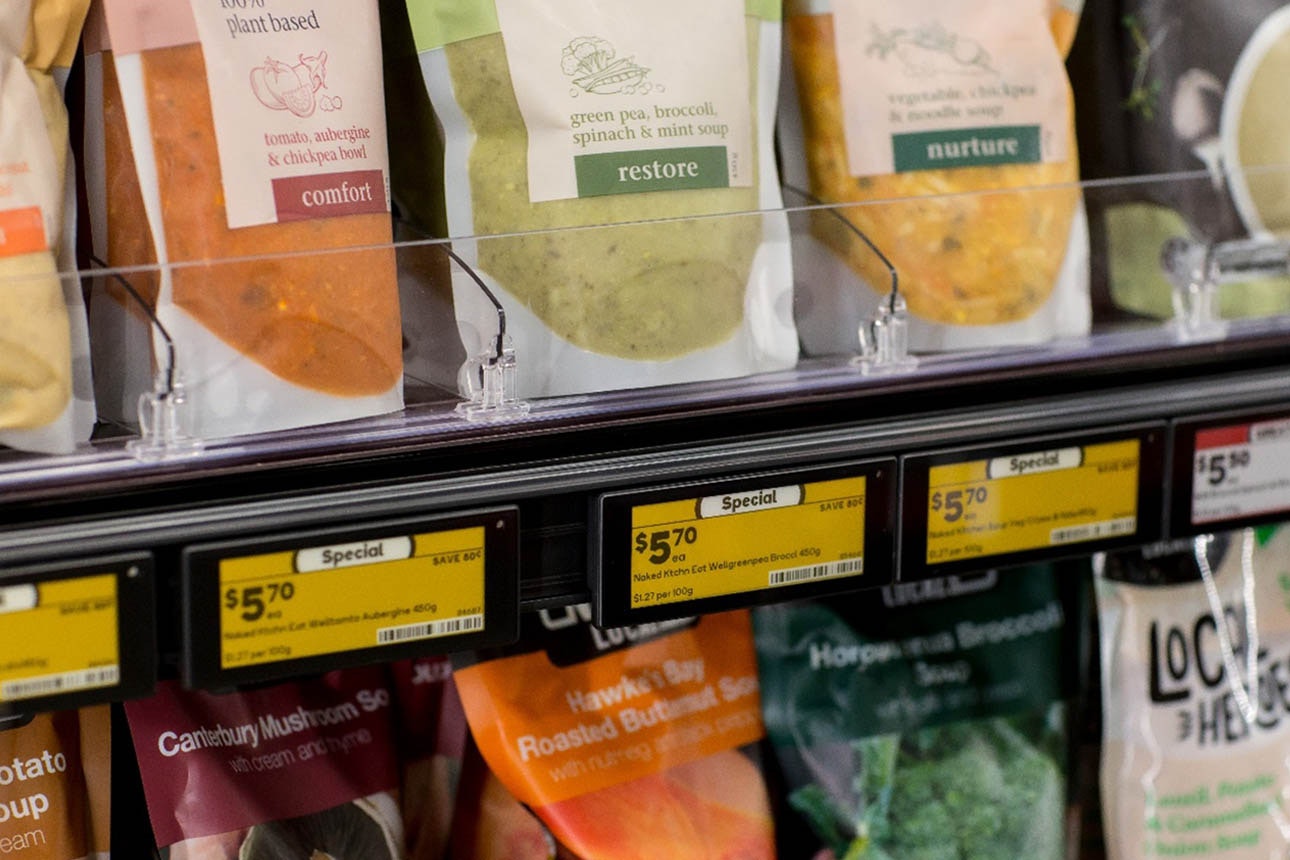We've lodged a complaint with the Commerce Commission, asking it to investigate Woolworths and Foodstuffs stores for potential breaches of the Fair Trading Act.
As part of our campaign to “end dodgy specials” at the supermarket, we asked New Zealanders to send in examples of unclear or misleading pricing and promotional practices.
Throughout June 2023, we received 80 examples of problematic pricing across both Foodstuffs and Woolworths stores.
We have now shared the evidence gathered during June with the Commerce Commission, asking it to investigate our concerns that the supermarkets’ pricing and promotional practices have breached the Fair Trading Act.
“The evidence sent to us in June includes 50 examples of misleading pricing, including 18 instances of people being charged more than the advertised price, 11 misleading multi-buys, and 21 specials that were not special. There were also 30 instances of other potentially misleading pricing and promotional practices,” says Gemma Rasmussen, head of research and advocacy at Consumer NZ.
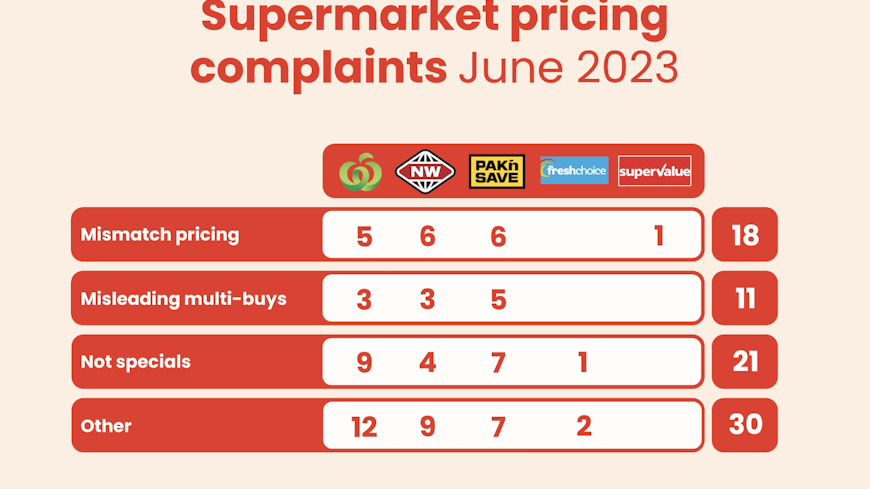
Problematic pricing persists
We first put out a call in September 2022 to determine the scale of pricing issues in supermarkets across Aotearoa.
“From September to the end of June, we received a total of 602 complaints from disgruntled shoppers,” says Rasmussen.
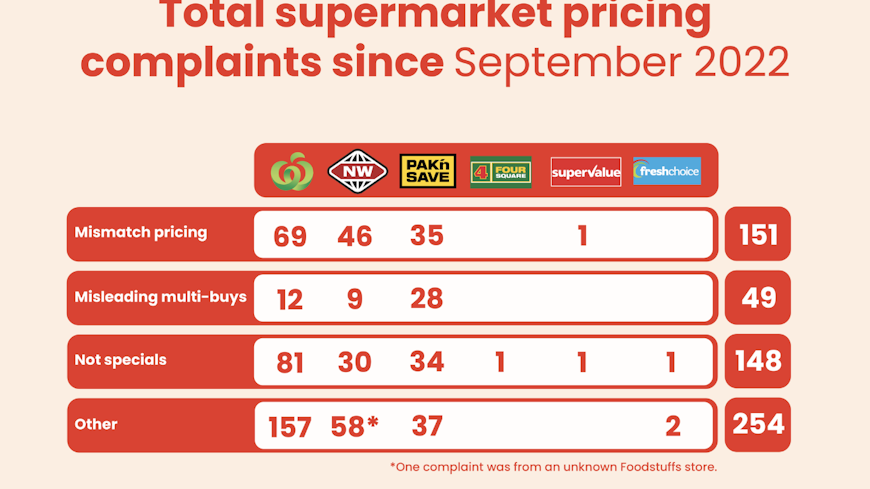
“We found that dodgy multi-buys were most common at Foodstuffs stores, and specials that were more expensive than the original price were most common at Woolworths stores.
“Mismatch pricing, which is where you’re charged a higher price than the price on the shelf, was common across all stores.”
These weren’t the only issues shoppers reported.
“We received a wide range of complaints that suggest going to the supermarket is an overwhelming and confusing experience for many.
“People who emailed us were confused by the placement of signage and products, and frustrated that specials often fail to display the regular price so they can’t evaluate the true value of a discount.
“People were also frustrated by incorrect unit prices, and products displaying no prices at all,” says Rasmussen.
Our campaign also found that New Zealanders seem to be increasingly suspicious of supermarkets.
“As more people feel the cost-of-living squeeze, they’re carefully budgeting and noticing new and unexpected tactics. One shopper noticed that the price of leeks increased one week, and when it did, the leeks came with the special tagline – “fresh deal”.
“Another shopper observed electronic labelling that displayed the “Clubcard” price for 8 seconds, but only displayed the regular price for 2 seconds.
"We also saw an increase in the number of people who suspect their local supermarket is deliberately limiting sale stock,” says Rasmussen.
People are losing trust
Rasmussen says the findings from our campaign reinforce the findings from its latest Sentiment Tracker survey.
“In June 2021, supermarkets were one of the most trusted sectors in New Zealand. Since then, supermarkets have experienced the most significant decline in trust, having plummeted 42% over the past 24 months.
“It's concerning when you look at current sentiment and our campaign findings together. This industry is fundamental to people’s lives, and it simply needs to work better for consumers.
“It is because the cost of food is rising that shoppers must be able to trust the prices they see on their shelves. We’re simply asking the supermarkets to do the bare minimum and ensure they’re complying with the Fair Trading Act.”
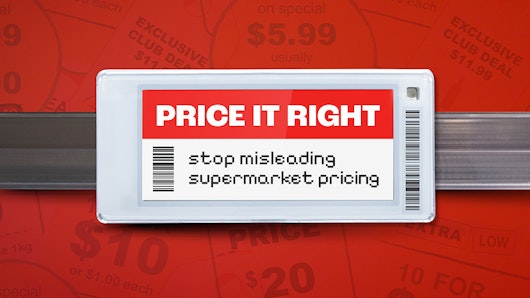
Make supermarkets price it right
Find out about our campaign to tell the government we need clear rules, stronger penalties and automatic compensation for shoppers.
